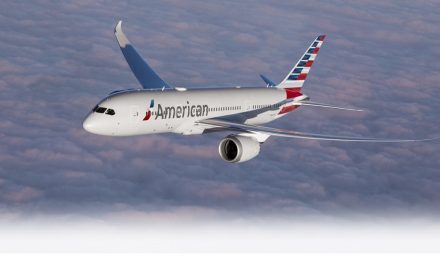
American and BA say tie-up justified in new era
American Airlines and British Airways have told US regulators the international aviation market has changed so drastically in the last five years that their proposed transatlantic alliance does not present the anti-competitive problems that killed the deal last time the carriers attempted a tie-up.
In a 112-page brief to the US Transportation Department seeking antitrust immunity for their partnership – filed on Friday but made public on Monday – the airlines argued that other alliances, particularly United and Lufthansa’s Star Alliance, have grown strong, diverting traffic away from London’s Heathrow Airport.
“These changes have reduced the relative competitive significance both of London as a European hub, and of American and British Airways at Heathrow,” the companies said in their filing.
In 1996, the two airlines announced a similar tie-up, but were forced to withdraw an immunity application after regulators expressed concern the partners would dominate Europe’s busiest airport. Regulators sought to force BA to divest hundreds of take-off and landing spots at Heathrow, where BA and American are two of only four airlines allowed to fly to the US. BA and American’s alliance agreement would allow the carriers to share revenues and profits on transatlantic flights, co-ordinate pricing and schedules, and provide joint marketing. Because of the shared information, the carriers need to be exempt from US antitrust laws for the alliance to go forward.
US regulators have said no British airline would be granted antitrust immunity until the UK and US governments reach an “open skies” air liberalisation agreement. Negotiators on both sides met informally in June, but sources said formal negotiations would probably not take place for several months despite the BA-AA filing.
In addition to attempting to downplay the significance of Heathrow as a transatlantic hub, BA and American’s application relies heavily on US Transportation Department studies which show that international alliances reduce costs and prices.
The airlines said cost savings could allow them to reduce fares by as much as 25 per cent if their alliance were immunised.
The application also makes great play of the rise of the Star Alliance, which served 307m passengers last year, making it by far the largest of the alliances.
BMI British Midland, the UK’s second largest carrier, is a member of Star and will file its own immunity application with United Airlines shortly. BMI, which has 13.6 per cent of slots at Heathrow, is also expected to serve the US from the London airport once an open skies agreement is reached.
“There is no doubt that the Star Alliance is now a major competitor at Heathrow and is positioned to become even stronger,” BA and American lawyers argued.
Financial Times












